#Vitamins
Text
⭐Vitamin Cheat Sheet⭐
Vitamin A: Vision, immune system, skin health.
Vitamin B1 (Thiamine): Energy metabolism, nerve function.
Vitamin B2 (Riboflavin): Energy production, skin health.
Vitamin B3 (Niacin): Cellular energy production, skin health.
Vitamin B5 (Pantothenic Acid): Metabolism, hormone production.
Vitamin B6: Brain function, mood regulation.
Vitamin B7 (Biotin): Healthy hair, skin, and nails.
Vitamin B9 (Folate): Cell division, DNA synthesis.
Vitamin B12: Nervous system, red blood cells.
Vitamin C: Immune system, collagen synthesis.
Vitamin D: Bone health, immune function.
Vitamin E: Antioxidant, skin health.
Vitamin K: Blood clotting, bone health.
Calcium: Bone and teeth health, muscle function.
Iron: Oxygen transport, energy production.
Magnesium: Nerve function, muscle relaxation.
Zinc: Immune system, wound healing.
Potassium: Fluid balance, nerve function.
Iodine: Thyroid function, metabolism.
Selenium: Antioxidant, thyroid health.
#vitamins#health and wellness#healthy living#health tips#healthyhabits#healthy lifestyle#nutrition#supplements#wellness#wellbeing#health is wealth#self care#food#healthy diet#skincare#lifestyle#green juice girl#clean girl aesthetic#fitness
31K notes
·
View notes
Text
My doctor says I'm lacking vitamin U.
#true story#vitamin u#vitamins#quotes#feelings#emotions#love#thoughtful#huh#dumblr#wise words#facts#pickup lines
304 notes
·
View notes
Text
I have a theory about C vitamins that makes me sound like a crazy person.
On one hand we have people who swear that C vitamins help with colds and on the other hand we have scientists who say it doesn’t help.
I’m in the first camp but ONLY when it’s effervescent tablets. Hear me out.
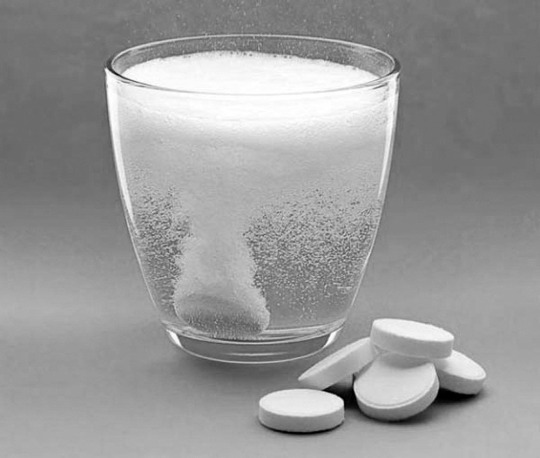
I’ve always had insane colds but 20 years ago I started taking effervescent C vitamin tablets every day. Ever since then I’ve had no colds most years and occasionally very mild colds. If I for one reason or another stopped taking them my colds came back full force. At one point I tried switching to regular tablets because they’re cheaper but they had the same effect as if I had taken no C vitamins at all.
Now, I have a friend who just finished medical school who told me bubbles for some reason make our body absorb stuff faster. We don’t know why, but that’s why some medication shouldn’t be taken with fizzy drinks because it mess with absorption time/strength. Also, C vitamins are absorbed at the very beginning of our intestines which means our body has relatively short time to absorb it.
So my theory is maybe that’s why regular c vitamin tablets don’t have much of an effect while effervescent tablets have already been dissolved in water, which is easier for the body to absorb, and on top of that it has bubbles which means the body absorbs even more. That’s why the people who swear by c vitamins are always the ones who use effervescent tablets.
I have no idea if this has been tested in a lab or if the effects of different types of c vitamin tablets have been compared. I just know c vitamins help some of us and I don’t know why.
380 notes
·
View notes
Text

The vitamins and supplements i take everyday!🥰
It's important to stay healthy while losing weight
#4n0r3xia#ana trigger#anarex14#tw ana trigger#tw disordered eating#tw ed sheeran#tw restriction#3ating d1sorder#b0n3sp0#i wanna be perfect#vitamins#girls who do pills#take your pills
151 notes
·
View notes
Text
As a biochem student no class of biomolecules fascinate me more than vitamins. Because unlike other types of biomolecules like carbohydrates and lipids, there’s really no specific structure pattern vitamins have. They’re just random molecules necessary for human survival that just don’t fit into any other category. The only thing that unites vitamins to each other is the fact we need them to live, but our bodies can’t make them.
#in all of my classes where vitamins have shown up profs are like so these are vitamins no they have nothing in common with each other and if#We didn’t need them to live no one would ever put these molecules in the same class#vitamins#Biochemistry
321 notes
·
View notes
Text
vitamins & supplements i take as someone with a restrictive ed
i find that eating less and putting my body through certain stress affects a lot of mental and physical factors —like hair loss and brain fog— and studies show its usually because of vitamin deficiencies…
so this is what vitamins i take daily to make everyday life a little easier and to keep up with my health :)
morning/first meal of the day
vitamin C: immune system + skin elasticity
collagen: skin elasticity + hair + nails + muscle mass
biotin: self care^ + nervous system (only a few times a week because i find it causes my pores to grow larger if taken too frequently)
vitamin B complex: cell health + energy levels + digestion & appetite + brain function
vitamin D3: bone and muscle health + immune system
iron: red blood & cell health + energy levels + brain function
omega-3: brain function + cancer & other disease prevention
evening/before bed
magnesium: improved sleep + mood + energy levels
taking vitamins wont counteract or necessarily fix any serious damage being done to one’s body, but it is still very important to keep maintenance with one’s bodily needs!
#ana vitamins#⭐️ve#⭐️ving#tw ana thoughts#tw ana diary#tw 3d#ana trigger#ana goals#ana inspo#ana rules#anorekix#th!n$p0#th!n$piration#vitamins#tw ana diet#anasp0#anatumblr#ana t1ps#th1n$po#th1nsp1r4t10n#tw ed in the tags#th!nspo#i wish i was thinner#@na diet#@na tips#@norexia
849 notes
·
View notes
Photo
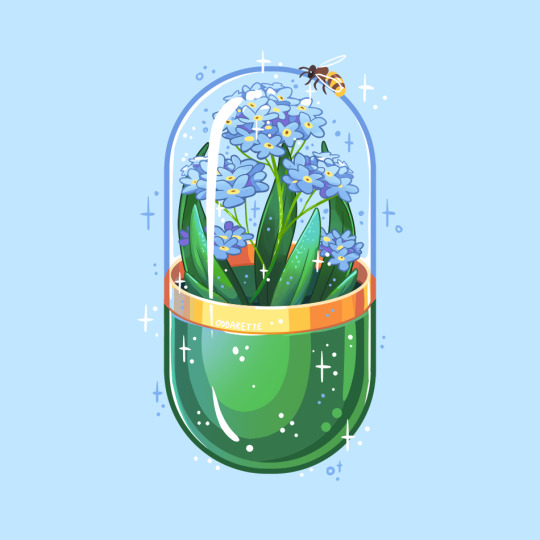
Forget-Me-Not Pill
466 notes
·
View notes
Text
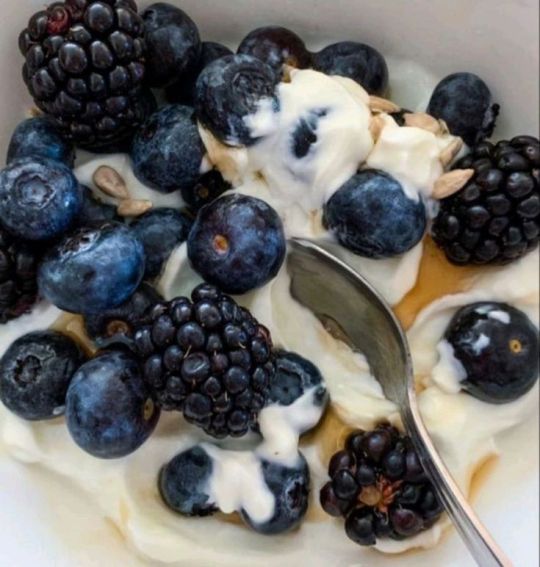
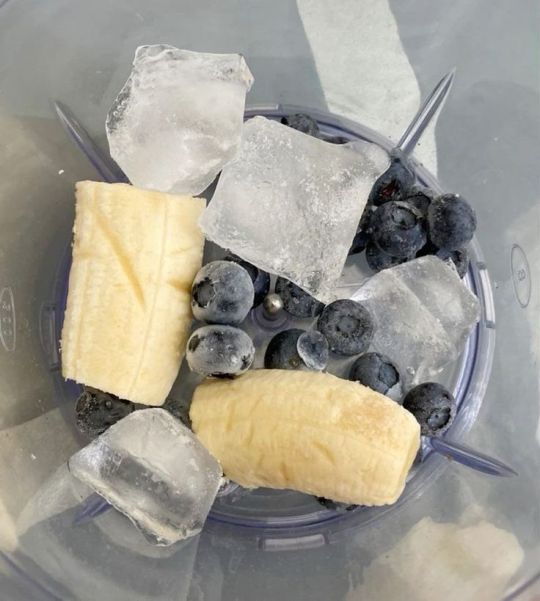
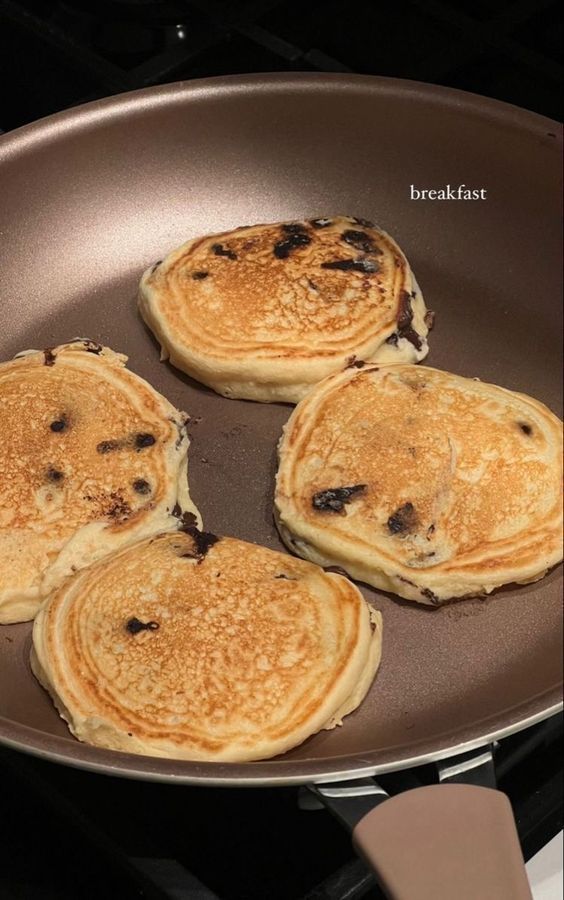
the effect of what (and how) you eat
okay, this is a big topic. and so this is a long post. i'm going to be going over the effect of what you eat and why it's important to think about what foods you are consuming. don't worry! i do my research-- at the end of the post will be a few resources, and i'll show where i've gotten my information.
lots of dietary advice is available over the internet, but often the people absorbing the information do not understand the why. knowing where your information is coming from,, and not believing everything you read online is key to actually maintaining a good, healthy diet.
before you read: TRIGGER WARNING THERE IS MENTION OF EATING DISORDERS,,
let's start with this: like everything in this age, food is a double-edged sword. overconsumption and underconsumption can both kill you. what you eat; how you eat--it can help or hinder whatever your goals may be.
here's the effect/s: the connection between diet and mental health is profound. while we’ve long understood that diet plays a crucial role in overall health, emerging research in the field of nutritional psychiatry sheds light on how what we eat directly impacts our emotional well-being and mental state.
the brain-gut connection: the gut is closely linked to the brain. trillions of living microbes in our gut have essential functions, including synthesizing neurotransmitters. these neurotransmitters send chemical messages to the brain, regulating sleep, pain, appetite, mood, and emotions.
to improve your gut health, here's what you can do:
by eating a varied diet that includes fruits, vegetables, whole grains, nuts and seeds, essential nutrients are provided which feeds the beneficial bacteria in the gut. high fibre foods promote gut health by supporting good bacteria.
fermented foods, such as yogurt, kefir, sauerkraut, kimchi, and miso are rich in probiotics—live beneficial bacteria that boost gut health. kombucha (a fermented tea) is another option.
avoiding reducing processed foods can reduce the diversity of good bacteria in your gut. when i say processed foods, i'm referring to ultra-processed foods, for example, fried foods and frozen meals. they may be easy and cheap, but they include preservatives, artificial colouring, chemical flavouring and texturing agents. all of which our bodies are not made to consume.
it's ignorant to tell you to avoid processed foods at all costs. that's not realistic, and a horrible mindset. instead, you should manage your intake. enjoy treats every now and then and don't punish yourself for it.
hydration is key to a healthy gut. water supports digestion and nutrient absorption.
stress management, eating well and exercise can also help your gut microbiome's health.
by having a healthy gut microbiome, you are helping your body to have lower chronic inflammation, have regular bowel movements and more effectively absorb nutrients. therefore, you will have a stronger immune system, have clearer skin and support your digestion and metabolism.
why eating protein matters: proteins are made of amino acids, which serve as the fundamental building blocks for various structures in our bodies. these amino acids are essential for forming enzymes, hormones, tissues, and DNA. protein is vital in maintaining and building muscle mass. when activities like strength training and physical exercise are engaged in, protein helps build and repair the muscles.
hemoglobin, a protein in our red blood cells, transports oxygen from our lungs to other tissues. without adequate protein, oxygen delivery would be compromised. antibodies, which defend against infections, are made of proteins. a well-functioning immune system relies on sufficient protein intake. collagen, a protein, maintains the integrity of our skin, hair, and nails. adequate protein supports healthy skin elasticity and wound healing.
the recommended dietary intake for protein relies on factors such as age, weight, height, gender, activity and overall health. remember that individual needs can vary, so consulting with a healthcare provider or registered dietitian is advisable to determine your specific protein requirements.
many diets exist that cut out entire macronutrients (keto for example) but that is not the way. each macronutrient has great importance in helping the body function.
carbohydrates are the body's (including the brain) preferred energy source. they enable muscle contraction during exercise and even at rest. carbs maintain body temperature, support heart function, and aid digestion.
the keto diet comes from the belief that when carbohydrates are not providing energy (are not being consumed), the body will use reserved energy stored in lipids (fat). while this is true, this diet is not maintainable-- it throws the body out of whack, storing more energy to maintain homeostasis.
fats provide energy and are essential for hormone production. they contribute to cell growth, brain health and vitamin absorption.
our brain is composed of ~60% fat. fats are essential for neurotransmitter production, affecting mood, cognition, and hormonal signalling. cholesterol, often associated with heart health, is a precursor for steroid hormones (testosterone, estrogen, progesterone). without adequate cholesterol, our body cannot produce these essential hormones.
effects of diet on mood: firstly, going long periods without eating can cause a drop in blood sugar levels, leading to tiredness and irritability. secondly, consuming excessive amounts of food can make you feel tired and lethargic.
choosing the right carbohydrates can help maintain blood sugar levels. our brain primarily runs on glucose (obtained from carbohydrate-rich foods). you can opt for slow-release carbohydrates to maintain steady energy levels. slow-release carbohydrates (a.k.a low GI food) provide a more sustained and gradual release of energy compared to other carbohydrates. examples include fruits, vegetables, whole grains (grainy bread, brown rice, oats) and sweet potatoes. high GI foods rapidly spike blood sugar levels due to their quick digestion and absorption.
going too long without eating can lead to low blood sugar levels, resulting in irritability and fatigue. overeating to discomfort can also leave you feeling tired and lethargic. consistent, moderate-sized meals help maintain stable blood sugar levels and promote an even mood.
i know, overeating is an issue that one cannot simply 'turn off'. it's important to know the psychology, and if you struggle with it--please talk to a health professional.
here is what i can tell you about overeating:
overeating is typically a learned behaviour and habit. certain foods are associated with pleasure and reward. when enticing food is encountered, we engage in eating behaviour and immediately experience pleasure. this reinforces the habit, making it challenging to change.
overeating may be serving as a coping mechanism for emotions. when feelings of sadness, disappointment, frustration, or even joy arise, someone may turn to food. emotional eating provides temporary relief, reinforcing the behaviour.
the first delicious bite triggers pleasure, satiates our appetite, and improves our emotional state. our memory associates this reward process with eating, leading us to continually seek that pleasure. this is due to immediate reward.
people with eating disorders may disregard their health, body, body image and lifestyle goals. they use food as a way to punish themselves and gain control over their life. restrictive eating disorders can lead to 'binging behaviour'. bingeing serves as a way to numb emotions. anxiety, stress, and depression can trigger binge behaviours. consuming certain foods or substances (like junk food or alcohol) releases dopamine, the “feel-good” neurotransmitter. this chemical rush can lead to physical addiction, reinforcing bingeing. a culture (unfortunately which is abundant in the world today) that emphasizes consumption as a measure of worth can contribute to bingeing. messages about thinness, drinking, and material possessions can drive these behaviours.
i hate that i am having to say this but alcoholism is bad. and caffeine addiction is bad. in no way is harming your health aesthetic or 'a vibe'.
limiting caffeine and alcohol can also improve mood. again, i'd like to stress that there is never going to be one perfect diet, and allowing yourself to enjoy whatever food you like is perfectly fine- as long as you are doing so in moderation.
everything is a balance.
resources/further reading, to end:
Fat Requirements For Optimal Hormonal Health - Clean HealthHow Dietary Fat Benefits Hormones - Women's International Pharmacy (womensinternational.com)
The truth about fats: the good, the bad, and the in-between - Harvard HealthDietary fats | healthdirectMacronutrients: Definition, importance, and food sources (medicalnewstoday.com)Know Your Macros-Why Macronutrients Are Key to Healthy Eating | Cedars-SinaiWhy the Proper Balance of Macronutrients is Vital for Good Health - Functional Diagnostic Nutrition
What Is Protein & Why Do You Need It? (eatingwell.com)Protein: Why Your Body Needs It (webmd.com)Protein | The Nutrition Source | Harvard T.H. Chan School of Public HealthBinge-Eating Disorder (Compulsive Overeating) | Psychology Today AustraliaThe Psychology Behind Binge-Watching | PsychregBingeing: Why It Happens and What You Can Do About It (greatist.com)
Understanding Overeating: The Psychology Behind It - Listen-HardWhy stress causes people to overeat - Harvard HealthThe Truth About Overeating | Psychology TodaySlow-release carbs list (medicalnewstoday.com)Why understanding carbs (and how to count them) matters | Diabetes UK
Food and your mood - Better Health ChannelHow food can affect your mood | Nutrition AustraliaStress-related stomach pain: When to see a doctor - UChicago MedicineWhat Is Gut Health? A Comprehensive Guide to Digestive Wellness | U.S. News (usnews.com)Why Gut Health Matters More Than You Think | Well.Org
Probiotics: What They Are, Benefits & Side Effects (clevelandclinic.org)Probiotics: What You Need To Know | NCCIH (nih.gov)What should I eat for a healthy gut? - BBC FoodLet’s Eat: How Diet Influences the Brain (brainfacts.org)
i know the fact that the resources are one big block may be annoying, but i don't have the commitment to in text reference lmao. hours of research and writing for a blog post, yes, but in text referencing is just too far.
i hope you learnt something
❤️joanne
#elonomh#elonomhblog#student#student life#academia#chaotic academia#productivity#study blog#that girl#becoming that girl#sports science#anatomy#health science#health and wellness#healthy life#healthy lifestyle#wellness and health#mental health#health & fitness#healthylifestyle#health tips#wellness aesthetic#wellness girl#wellness moodboard#wellness#wellbeing#healthy living#vitamins
71 notes
·
View notes
Text

one a day 33/366
"orangejuice" / Vienna / Austria / ©Julia Lametta
102 notes
·
View notes
Text

It wasn’t so long ago people had to worry about stuff like this. Vitamin F now is called essential fatty acids like omega-3 and vitamin G is riboflavin or B2.
c.1935
80 notes
·
View notes
Text
Supplements & Vitamins
Here's a list of some of the most commonly used supplements and their benefits. Please remember that while supplements can be beneficial for certain people, everyones nutritional needs are different. It's always a good idea to consult with a specialist before adding any new supplements to your routine, as individual needs may vary.
Multivitamin: Provides a range of essential vitamins and minerals to support overall health and fill potential nutrient gaps in your diet.
Omega-3 Fatty Acids: Promote heart health, brain function, and reduce inflammation. Typically derived from fish oil or algae.
Vitamin D: Supports bone health, immune function, and may have a positive impact on mood. It's commonly obtained through sun exposure, but supplements can be useful, especially in winter or for those with limited sun exposure.
Probiotics: Help promote a healthy gut microbiome, aiding digestion, nutrient absorption, and immune function.
Magnesium: Important for muscle and nerve function, bone health, and energy production. It may also help with relaxation and sleep.
B vitamins: Help convert food into energy, support brain function, and maintain healthy hair, skin, and nails.
Vitamin C: Boosts immune function, acts as an antioxidant, supports collagen production, and aids in iron absorption.
Zinc: Essential for immune function, wound healing, and cell division. It also supports normal growth and development during pregnancy, childhood, and adolescence.
Iron: Required for red blood cell production and oxygen transport. Iron deficiency can lead to anemia and fatigue, but it's essential to get iron levels checked before supplementing.
Calcium: Crucial for bone health and muscle function. It's often combined with vitamin D for better absorption.
Coenzyme Q10 (CoQ10): Plays a vital role in energy production within cells and acts as an antioxidant. It may benefit heart health and cellular energy metabolism.
Curcumin (Turmeric extract): Possesses anti-inflammatory and antioxidant properties, potentially supporting joint health and cognitive function.
Ashwagandha: An adaptogenic herb that may help reduce stress, promote relaxation, and support cognitive function.
Green Tea Extract: Contains antioxidants and may support cardiovascular health, weight management, and cognitive function.
Glucosamine: Commonly used for joint health and may help alleviate symptoms of osteoarthritis.
Chondroitin: Often taken alongside glucosamine, it may help reduce joint pain and improve joint mobility.
Probiotics for Gut Health: Certain strains of probiotics can help restore and maintain a healthy balance of gut bacteria, supporting digestion and immune function.
Melatonin: A hormone that regulates sleep-wake cycles, melatonin supplements can help with insomnia or jet lag.
Vitamin E: An antioxidant that supports immune function and may help protect against cellular damage.
Ginseng: An adaptogenic herb that may help increase energy, reduce stress, and support cognitive function.
Prebiotics: These are non-digestible fibers that promote the growth of beneficial gut bacteria, supporting gut health and digestion.
Magnesium: In addition to its previous benefits, magnesium may help reduce muscle cramps, improve mood, and promote relaxation.
Probiotics for Vaginal Health: Certain strains of probiotics can help maintain a healthy balance of vaginal flora, reducing the risk of infections.
Cranberry Extract: Often used for urinary tract health, cranberry extract may help prevent urinary tract infections.
Resveratrol: Found in grapes and berries, resveratrol has antioxidant properties and may support heart health and longevity.
L-theanine: An amino acid commonly found in green tea, L-theanine may promote relaxation, improve focus, and reduce anxiety.
#vitamins#supplements#health tips#healthy diet#health is wealth#healthy living#health and wellness#healthy lifestyle#health#clean girl#glow up tips#level up journey#wellness
3K notes
·
View notes
Text
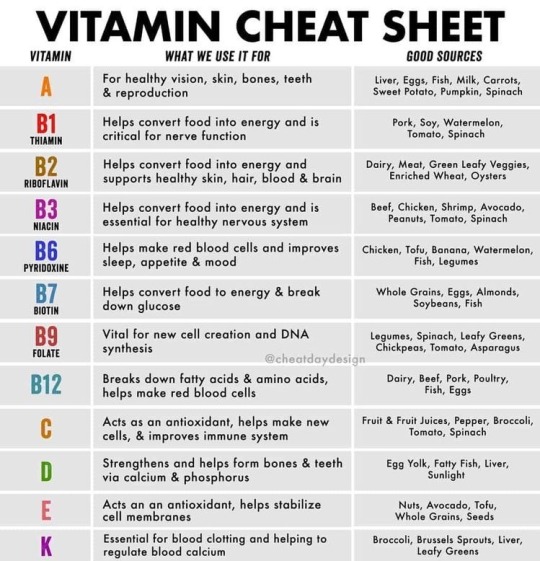
#vitamins#nutrients#healthy#healthy food#healthy eating#eat well#fitblr#fitness#weight loss#weight loss journey#fitspiration#health & fitness#motivation
384 notes
·
View notes
Text
The degree to which herbal supplements are unregulated continues to appal me
And by “unregulated” I don’t just mean that there’s no medical proof that the supplement you take works (there isn’t)
I mean also that no one checks to see if any supplement says it contains what it says it contains
This is an industry that has happily killed hundreds of people who never knew why their bodies were dying because they didn’t even know supplements were unregulated. It’s so hard for medical doctors to trace symptoms back to any one distributor’s batch of “immune system booster.” People have died of failing organs and cancers whose mystery causes no one will ever find out. We have learned the reasons for some of these deaths, but many more we’ll never catch. Those people died confused and in pain due to the corporate greed of companies that still get to present themselves as “natural” and “healthy”
The supplements industry has so much blood on its hands but people still think it’s safe and that’s just monstrous
#you want to talk about toxins well those are the real deal#supplements#vitamins#health#natural medicine#herbal care#traditional medicine
55 notes
·
View notes
Text

10 million strong, and growing...
#gif#flintstones chewable vitamins#the flintstones#chewable#vitamins#commercial#10 million strong#and growing
35 notes
·
View notes
Text
How to Build Good Habits and Break Bad Ones ?
Building good habits and breaking bad ones is a constant battle we all face. Here's the honest truth: it ain't easy, but it's definitely doable. Here are some battle-tested strategies to fight the good fight:
Building Good Habits:
Start Small & Celebrate Wins: Don't try to overhaul your life overnight. Begin with tiny, achievable goals – meditate for 5 minutes, drink a glass of water before bed. Celebrate these small wins – they fuel motivation!
Make it Easy & Attractive: Stack new habits onto existing routines. Brush your teeth? Do 10 squats then. Craving a coffee break? Take a walk instead. Make the good habit the easy, attractive choice.
Habit Pairing: Pair a new habit with an established one. Listen to an audiobook while commuting (bonus points for learning something new!).
Identity Shift: Focus on becoming the person who does the good habit. "I am a healthy eater," not "I should eat healthy."
Breaking Bad Habits:
Identify Triggers: What makes you reach for that extra slice of cake? Boredom? Stress? Find healthy alternatives to address the trigger. Swap sugary snacks for a walk or some deep breaths.
Remove Temptation: Out of sight, out of mind! Hide the junk food, unsubscribe from shopping sprees, put your phone away during work hours.
Find a Replacement: Can't seem to quit social media? Replace mindless scrolling with reading a book or calling a friend.
Don't Beat Yourself Up: Slips happen! The key is to get back on track quickly. Acknowledge the slip, learn from it, and recommit to the good habit.
Bonus Tip: Be patient! Habits take time to form and break. Consistency is key. There will be setbacks, but don't give up. Celebrate the progress, not just the perfection.pen_spark
CLICK HERE : HEALTHY HABITS
#vitamins#health and wellness#healthy living#health tips#healthyhabits#healthy lifestyle#nutrition#supplements#wellness#wellbeing#health is wealth#self care#food#healthy diet#skincare#lifestyle#green juice girl#clean girl aesthetic#fitness#healthy habits#clean girl#vanilla#vanilla girl#wonyoungism#girlblogging#girlhood#glow up#it girl#love#it girl aesthetic
29 notes
·
View notes
Text

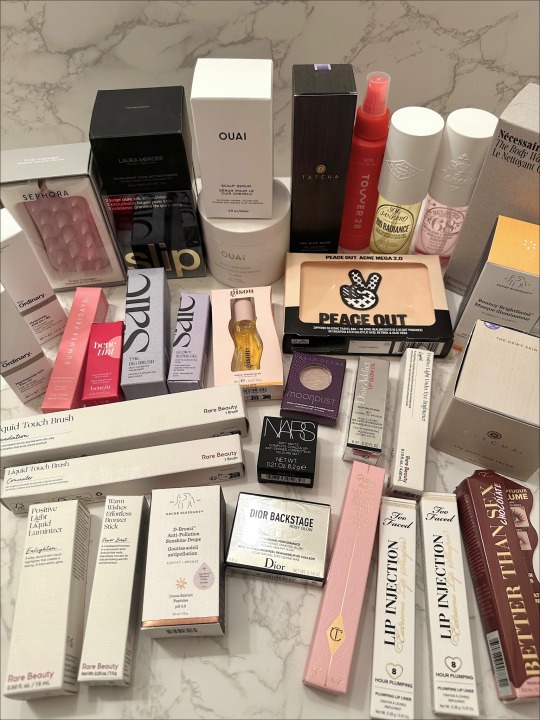
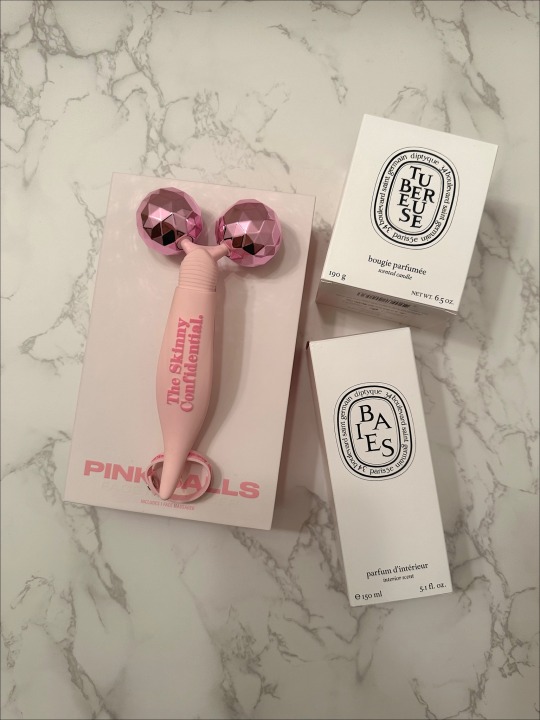
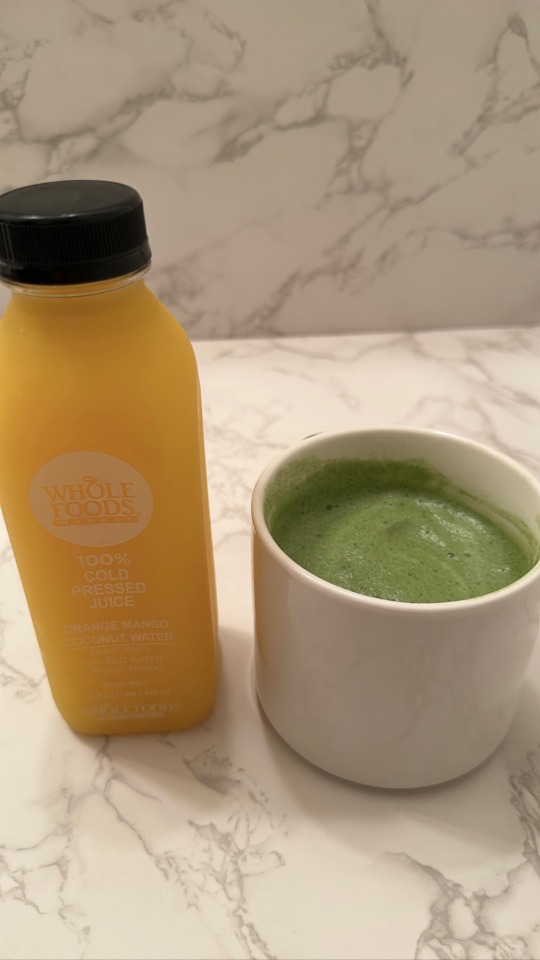


treat yourself🤍
199 notes
·
View notes